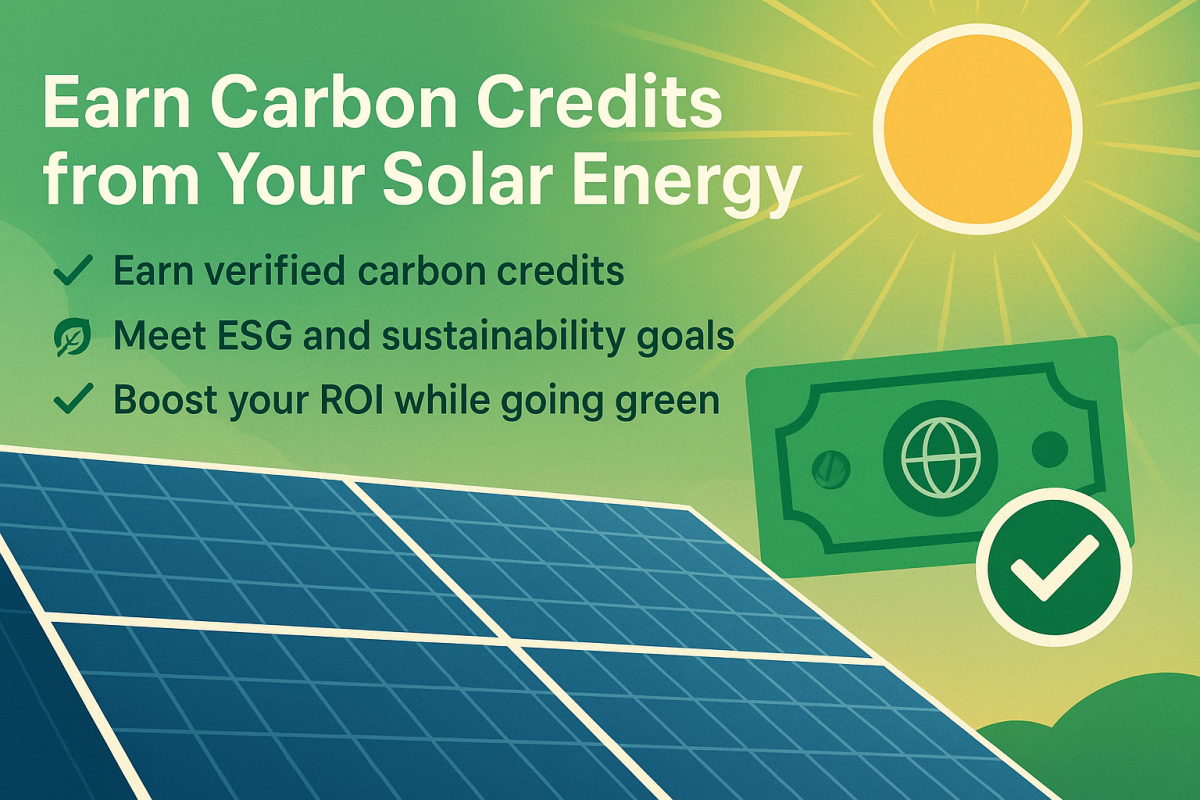South African businesses are under mounting pressure to operate more sustainably, not just to meet compliance standards, but to attract investors, customers, and partners who value climate responsibility.
The good news? If you’ve invested in solar PV, your clean energy system could be worth more than just electricity savings.
It could also generate carbon credits — a tradable asset with real financial value.
At JUP Solutions, we’re helping clients turn their solar investments into measurable, verifiable carbon benefits.
What Are Carbon Credits, and How Do They Work?
A carbon credit represents one tonne of carbon dioxide (CO₂) that’s either avoided or removed from the atmosphere.
When a business installs a solar PV system, it reduces its grid electricity consumption and because South Africa’s national grid is primarily coal-based, every kWh of solar power produced prevents CO₂ emissions.
Those avoided emissions can be quantified, verified, and sold as carbon credits through recognised registries or corporate offset programmes.
In short:
Every kilowatt-hour of clean solar energy you generate = measurable climate impact = potential financial return.
Why Carbon Credits Matter in the PV Solar Industry
- Monetise Your Green Investment
Businesses can now earn additional income from their solar projects, improving ROI and shortening payback periods. - Meet ESG & Reporting Requirements
Many corporates now require proof of emission reductions within their supply chains. Carbon credits from solar power help you meet those ESG goals credibly. - Enhance Brand Reputation
Customers and investors want visible climate action. Publicly declaring your certified carbon offset achievements builds trust and brand value. - Support South Africa’s Just Energy Transition
By generating and trading local credits, companies help fund further renewable energy projects and community development.
How Solar PV Generates Carbon Credits
Each MWh (1 000 kWh) of solar power produced avoids approximately 0.9 tonnes of CO₂ in South Africa’s grid mix.
| System Size | Annual Generation | Approx. CO₂ Offset | Potential Carbon Credits/Year* |
|---|---|---|---|
| 30 kW SME Rooftop | 48 000 kWh | ~43 t CO₂ | 43 credits |
| 100 kW Commercial | 160 000 kWh | ~144 t CO₂ | 144 credits |
| 1 MW Industrial | 1 600 000 kWh | ~1 440 t CO₂ | 1 440 credits |
*Estimates vary depending on verification standards and grid emission factors.
How to Register and Monetise Your Solar Credits
- Measure: Capture production data from your inverter/monitoring platform.
- Verify: Work with an accredited verifier (e.g. Gold Standard, Verra) or local carbon programme.
- Register: Submit your project under a recognised carbon registry.
- Trade: Sell verified credits on the voluntary market to corporates or investors seeking offsets.
JUP Solutions can guide you through this process from system monitoring to documentation and partner introductions.
Why JUP Solutions Is Leading This Transition
We don’t just install solar panels.
We build future-ready energy ecosystems that combine:
- High-quality PV hardware and microinverter tech
- Real-time monitoring for emissions data capture
- ESG-aligned reporting tools
- Partnerships with sustainability consultants for credit verification
Our goal: help your business save money, stay powered, and earn while going green.
Power with Purpose
The sun is already powering your operations, now it can power your climate impact too.
Let’s turn your clean energy into verified carbon value.
JUP Solutions — Powering Progress, Sustainably.
Share this Post

